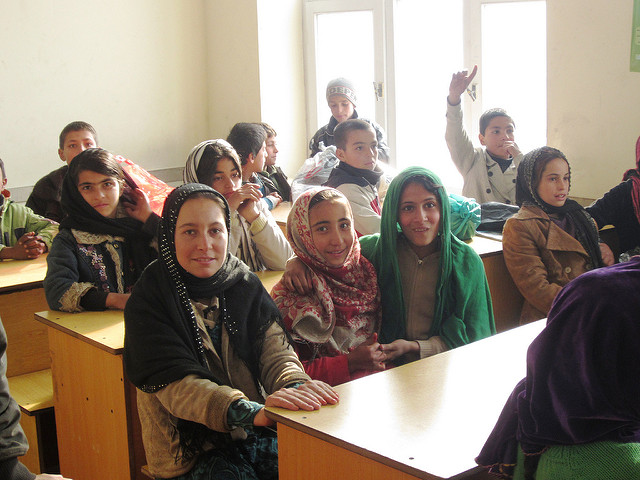New Delhi: The Taliban administration’s decision to ban girl students from class VII onwards from attending classes in Afghanistan has raised serious concerns not just inside the country, but in India and in the United Nations (UN) with questions being raised as to whether Taliban was prepared or even willing to be a part of the global system.
Multiple officials, involved with UN agencies that are working in Kabul and who in many areas, are the only source of bringing relief to the locals, spoke to The Sunday Guardian expressing their anger and sadness over this massively “regressive” step.
In mid-March, the Afghanistan’s Ministry of Education had announced that schools for all students, including girls, would open around the country on Wednesday—the first day of Afghanistan’s new school year—after seven months of restrictions on education for high school-aged girls.
However, even as the first period was about to start and children were assembling in front of the school gates, the Taliban took a U-turn and decided to bar girls above class VI from attending class till further order.
A notice issued by the Ministry of Education said that girls will not be allowed to attend schools until a plan is drawn up in accordance with Islamic law and Afghan culture. As per official data, the number of female population in the country in the age group 15-24 years was 38 lakh and in the age group 0-14, the number was 73 lakh.
“The Taliban has gone back to its old form, something it promised it will not. We are heart-broken; people broke down when they heard that the Taliban has decided to stop girl students from attending schools. There are many locals who have daughters and who had just come to the office after dropping their kids at school, they too broke down. This is a real tragedy; the Taliban needs to understand that the girls are human beings, not some cattle whom you tie in the shades and forget about it. The psychological impact of such a regressive decision, apart from the negative impact of denial of education and not allowing girls to mingle and socialize with their peer group in this sensitive age, will be enormous,” a senior official with one of the agencies of the United Nations told The Sunday Guardian from Kabul.
The local heads of various UN agencies were flooded with requests and pleas from fathers of daughters who wanted them to use the office and influence of the UN and other resources to reach out to the Taliban and request them to take back this regressive decision.
According to an official, a poll conducted by UN agencies last in which 65,000 young population of the country were contacted, 92% of girls said that they were excited to see schools open in Afghanistan, and 91% said they believe that education is essential for all children. “I was passing by a girl’s secondary school today, in which around 3,700 girl students were enrolled in class 7-12. All had assembled in front of the school gate, excited to sit in the class, meet their friends after so many months. All of a sudden, their principal came out and asked them to return to their homes. All the happiness suddenly turned into sadness and all I could see was tears in the eyes of these small girls,” read a message that was shared by a UN diplomat with his colleague.
Another father shared a message about how he took four sons and one daughter to the Kardan International School, Kabul, but her daughter was not allowed to go to her class. She continued to wait at the school gate with a hope that she would be allowed inside eventually. The father brought all the kids back home, where all of them cried together, he, his wife and the children.
“There is no issue of banning girls from schools. It is only a technical issue of deciding on the form of school uniform for girls. We hope the uniform issue is resolved and finalized as soon as possible,” Suhail Shaheen, former Taliban spokesperson and now the Taliban’s permanent ambassador-designate to the United Nations, told US radio station, NPR.
How the Taliban move ahead on this issue, depends a lot on the thinking of the Haqqanis, especially the 28-year-old Anas Haqqani, who enjoys a considerable influence on the decisions taken by the Taliban and is regarded as someone who is not as rigid and rabid fundamentalist as the other Taliban leaders. Anas, who likes writing poems, has been pushing to normalise ties with the other countries and it was he who persuaded his brother Sirajuddin to write an op-ed in the New York Times in February 2020, stating that they want peace to return to Afghanistan.
Taliban shows it is unchanged, bans girls from schools
- Advertisement -

